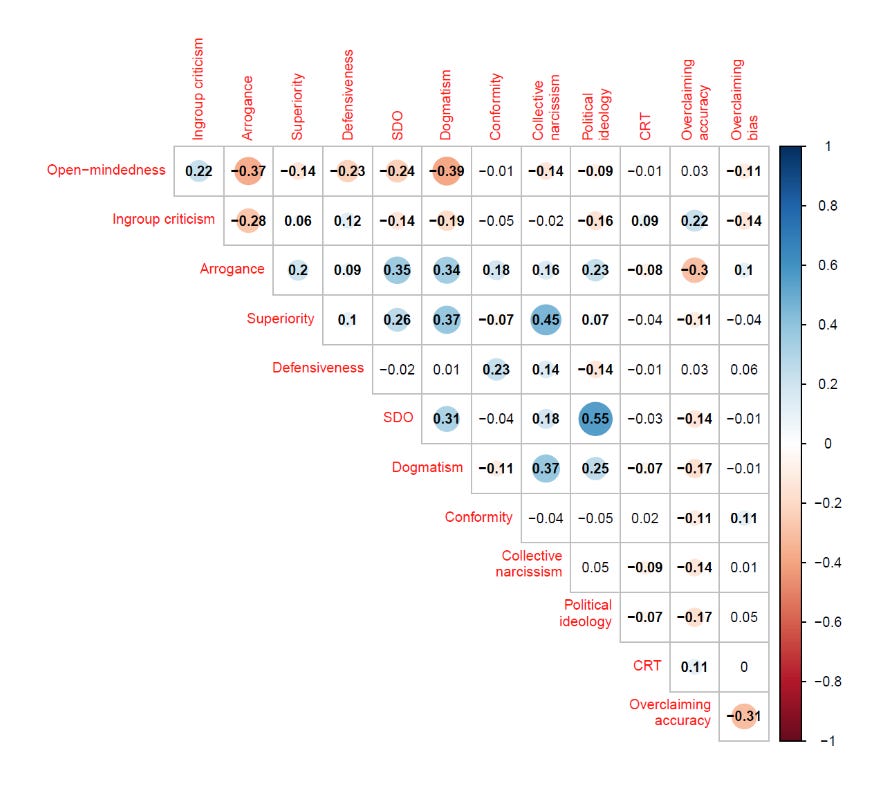The Collected Intergroup Intellectual Humility Scale: New Preprint
We give you a sneak peak a new preprint where we discuss how Intellectual Humility is measured + we created a consolidated scale.
Intellectual humility means recognizing that you might be wrong, being open to new evidence, and listening to other people’s views—even when they differ from your own. It’s about being curious rather than defensive when challenged.
Over the years, psychologists have created several different measures of intellectual humility. This poses a “jingle-jangle” problem for the field—where we have many terms for the same phenomenon, or the same terms to describe slightly different phenomena. These measures often overlap with one another and sometimes measure things inconsistently. For example, one might ask if you "welcome different ideas,” while another asks if you “are open to competing ideas.” Are those the same thing? Or different? It’s unclear. This confusion makes it hard for researchers to compare studies or build a clear understanding of how intellectual humility works.
To resolve this debate in the literature, we created the Collected Intergroup Intellectual Humility (CIIH) Scale. In a recent preprint, we conducted ten studies with nearly 6,000 people to combine the best parts of these existing tools into one, comprehensive measure. Our scale focuses not just on how humble people are in general, but we also added a measure of intellectual humility in group-based settings, like politics, religion, or race—where tensions and defensiveness can run high.
The following items assessed the disposition to turn a critical eye to the epistemic practices and standards of one’s ingroup: “To avoid group-think, it’s important to be extra critical of your own group’s ideas” and “I go out of my way to turn a critical eye on my own group’s beliefs”. If you strongly agree with these items, you score high on the ingroup criticism segment of intellectual humility.
The final CIIH includes five key traits:
Open-mindedness – being open to new perspectives and evidence.
Intellectual defensiveness – reacting emotionally or negatively to disagreement.
Intellectual arrogance – not caring about being wrong or learning new things.
Sense of intellectual superiority – believing you or your group are just smarter.
Ingroup criticism – being willing to question or challenge your own group.
Together, these cover both individual traits and social dynamics — like how we handle disagreement with outsiders or loyalty to our own group. The figure below shows the correlation between the five key traits of Intellectual Humility, along with several other cognitive and political measures.
You can read the full preprint here. This paper was led by Philip Pärnamets, Jay Van Bavel, and Mark Alfano.
Pärnamets, P., Van Bavel, J. J., & Alfano, M. (2025). Consolidating the measurement of intellectual humility: The Collected Intergroup Intellectual Humility (CIIH) scale. https://doi.org/10.31234/osf.io/ug756_v2
As faithful readers will know, we are testing out changes to our newsletter to see what our audience likes the best. Have you read this newsletter up to this point?
In case you missed our last newsletter:


